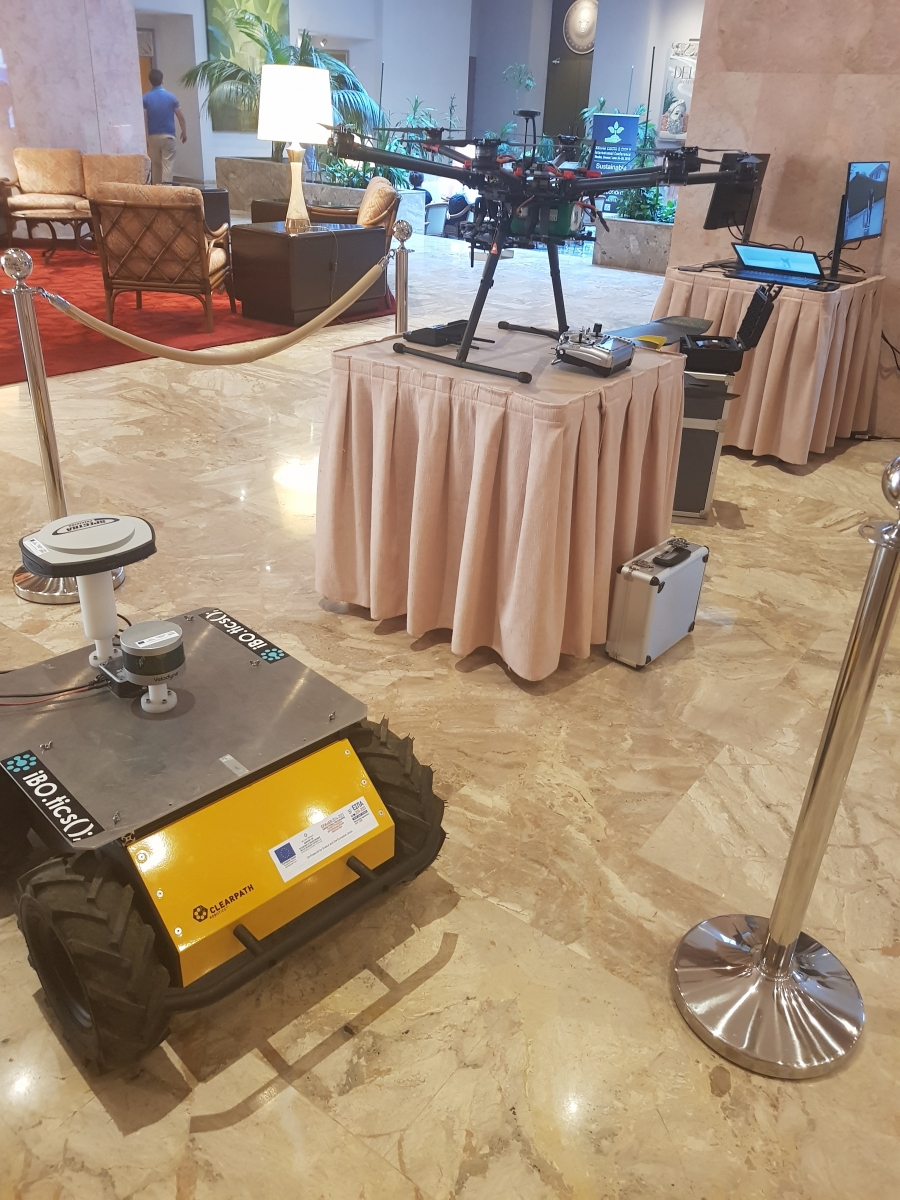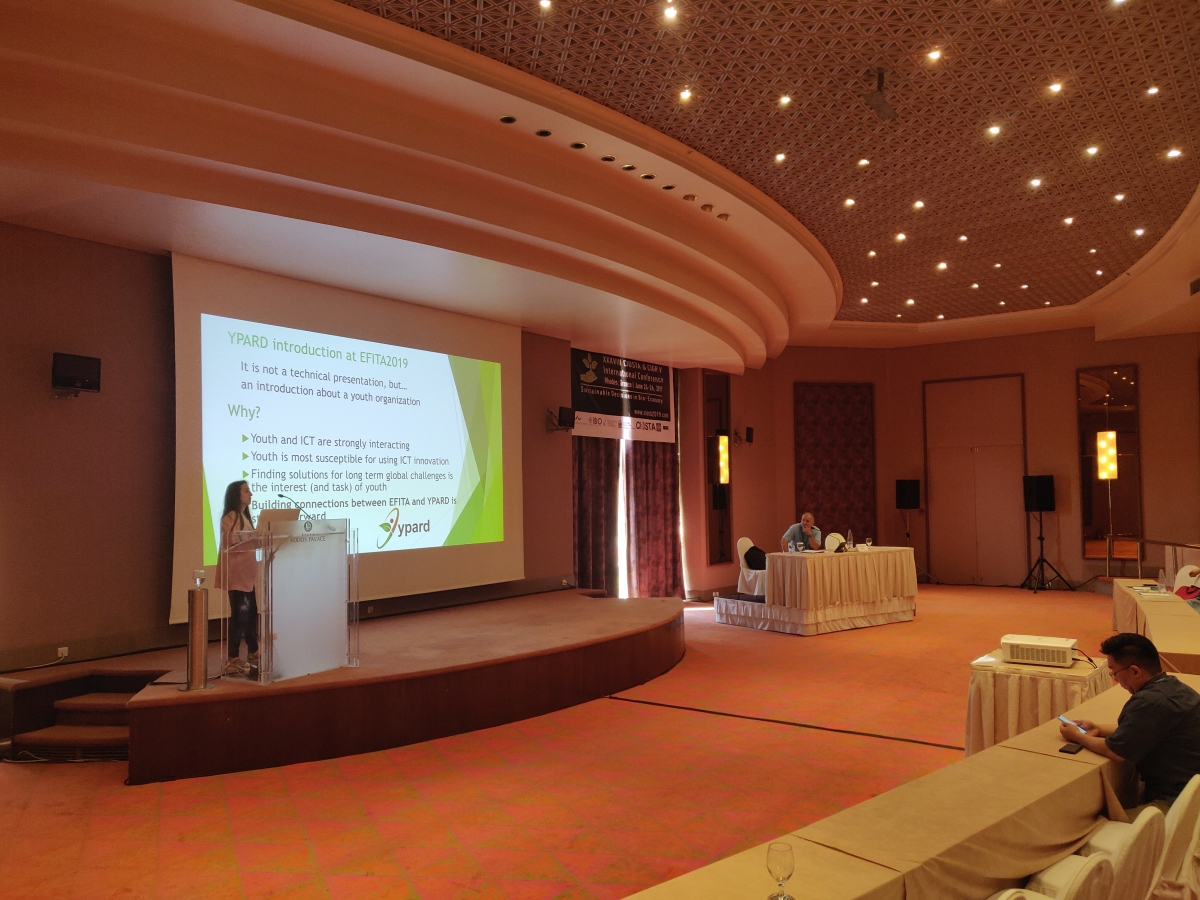-
About
- Our Work
- Get Involved
- Stay Updated
Quick highlights - EFITA conference 2019
Information and communication technology (ICT) evolves at lightning speed. It became part of our everyday life, so it is the very time to set them even more in the service of agriculture to compete for food and nutrition security.
Continuing the series, started in 1997 in Copenhagen, Denmark, the actual 12th EFITA conference was held in Rhodes Island, Greece, between 27-29 June, with the well-defined aims to bring together professionals and practitioners to share knowledge about actual and future use of ICT in the agrifood and bio-resource sectors. The dedicated focus of the conference was digitizing agriculture.
The conference was supported by the most important professional organizations in the field, such as the European Federation for Information Technology in Agriculture, Food and the Environment (EFITA) with the collaboration of the World Congress on Computers in Agriculture (WCCA), the Hellenic Association for Information and Communication Technologies in Agriculture, Food and Environment (HAICTA), and the International Commission of Agriculture and Biosystems Engineering (CIGR) Section VII (Information Technology).
 Thanks to the partial support of YPARD and of my institution (Kaposvar University, Hungary), I had a chance to participate, both as a presenter and as the board member of EFITA, also I introduced YPARD at the event.
Thanks to the partial support of YPARD and of my institution (Kaposvar University, Hungary), I had a chance to participate, both as a presenter and as the board member of EFITA, also I introduced YPARD at the event.In the first-day keynote speeches, we heard about smart irrigation and precision agriculture technologies from recognized experts in the field.
George Vellidis (University of Georgia, GA, USA) had a really interesting talk about smart irrigation topics. Irrigation is the next huge challenge for precision agriculture, as Prof. Vellidis, professor of crop and soil sciences and head of the Vellidis Research Group, highlighted. In terms of fertilizers, plant growth regulators, etc, precision agriculture developed quickly in the past years. The next issue, facing is the question of water. More crop per drop can only be achieved with the reasonable, precise utilization of water. Accordingly, controlled irrigation rates have to be applied, which requires real-time weather and soil moisture data. The very challenges are to determine the variable rate (i.e. the changing required amount) real-time and to utilize dynamic prescription maps instead of the static ones. Prof. Vellidis highlighted also some applications, available for various plants (https://smartirrigationapps.org/).
Prof. Raj Khosla from Colorado State University continued the plenary session with a comprehensive overview of developments of precision agriculture, focusing on future developments. He gave us some really thoughtful examples to illustrate the speed of development (e.g. highlighted the difference between the Apollo computer 50 years ago and a conventional smartphone today) and set the question about how the agriculture and its applied technologies will look like in 2050.
After the keynote talks, the program was organized around five main topics, such as Sensors, Data, Decision, Action, as well as Cross-cutting themes. In these sessions, typical contributions were presented in the range from simple but clever real-life applications to the most up-to-date solutions.
Also, several ICT demonstrations and technical tours focusing on ICT applications in real-life primary production, as well as workshops on Information and Robotic Systems were organized.
In the Decision session I had a presentation, highlighting the recent work of our group on modeling and simulation-based analysis, design, operation, and control of various agricultural processes (with actual fields of applications for fish production in natural ponds within changing climatic conditions, as well as for agroforestry systems).
Besides my technical presentation, I also had a chance to introduce YPARD in a presentation slot among Cross-cutting
 themes, which covered also topic on social media use and social networking in agriculture. The presentation generated a number of questions and led to further discussions, also after the session.
themes, which covered also topic on social media use and social networking in agriculture. The presentation generated a number of questions and led to further discussions, also after the session.A straightforward aspect of the conference was that many young professionals from various countries (Italy, South Korea, Belgium, France, Hungary, etc.) were represented. It is worth mentioning, a good example of the South Korean group because their topics were mostly presented by the collaborating master students.
As an overall impression, it was a small, but well-composed and familiar conference with around 150 participants from over 25 countries, and with the possibility for many personal discussions, accompanied with some great social events.
According to the previous arrangements, it is to be continued in Denmark in 2021!
Photo credit: Monika Varga and EFITA2019
About the author
Related Posts
Comments
No comments made yet. Be the first to submit a commentBy accepting you will be accessing a service provided by a third-party external to https://www.ypard.net/
Get in touch
Email: [email protected]
YPARD Global Coordination UnitHosted by AGRIDEA and the Czech University of Life Sciences Prague
Lausanne, Switzerland and Prague, Czech Republic - Our Work

 Thanks to the partial support of YPARD and of my institution (Kaposvar University, Hungary), I had a chance to participate, both as a presenter and as the board member of EFITA, also I introduced YPARD at the event.
Thanks to the partial support of YPARD and of my institution (Kaposvar University, Hungary), I had a chance to participate, both as a presenter and as the board member of EFITA, also I introduced YPARD at the event. themes, which covered also topic on social media use and social networking in agriculture. The presentation generated a number of questions and led to further discussions, also after the session.
themes, which covered also topic on social media use and social networking in agriculture. The presentation generated a number of questions and led to further discussions, also after the session.